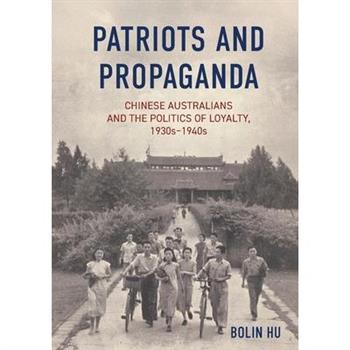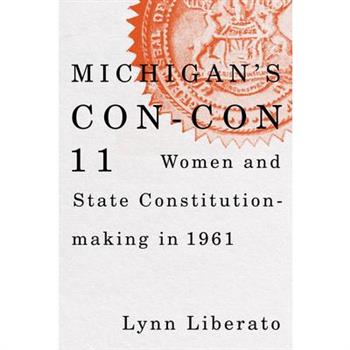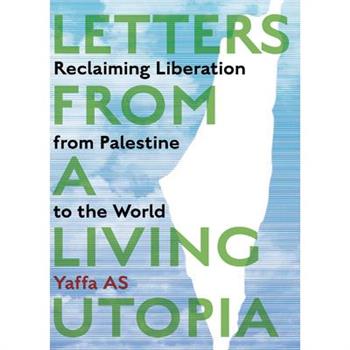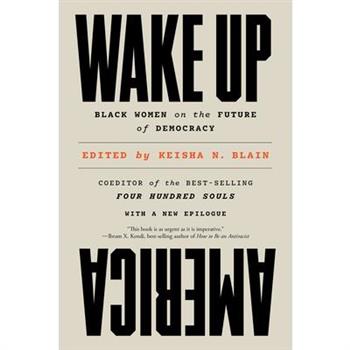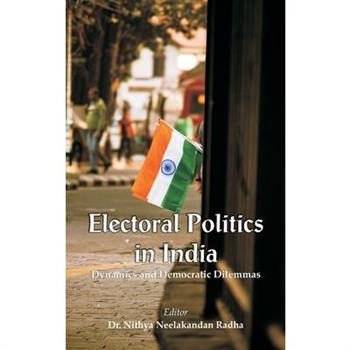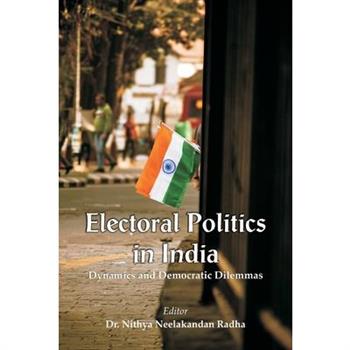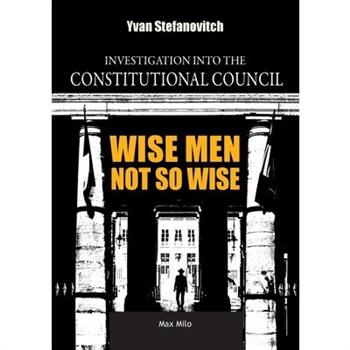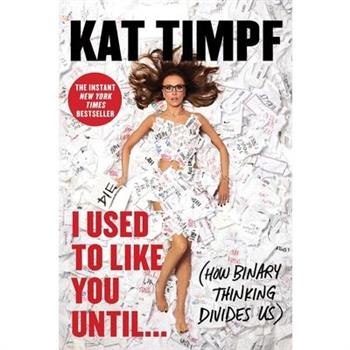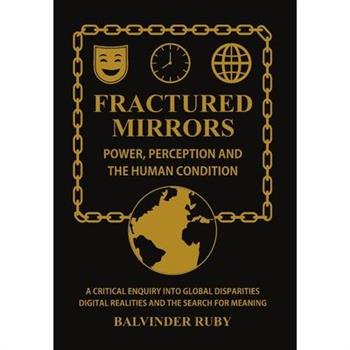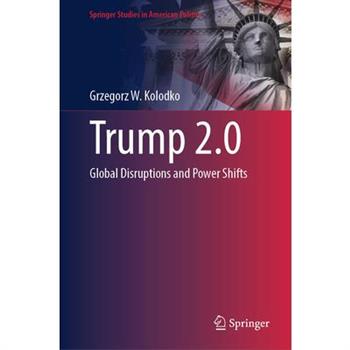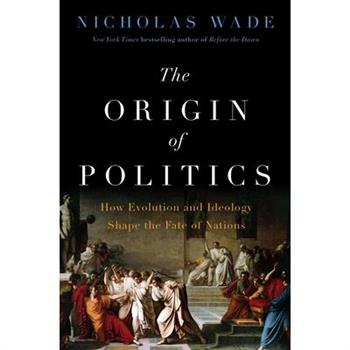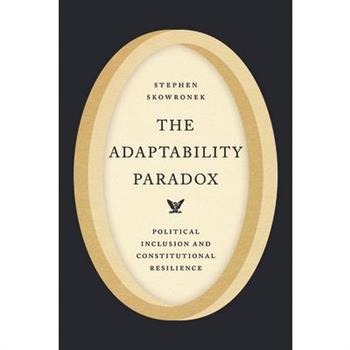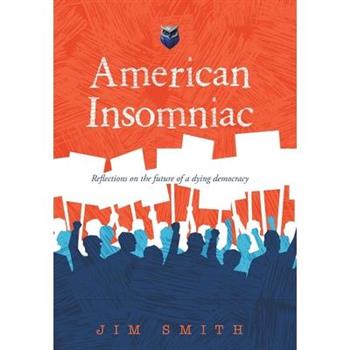Antidemocratic
"Chilling and convincing, Antidemocratic is a must-read." --Heather Cox Richardson, author of Democracy Awakening"David Daley has been at the absolute forefront of educating us about the theft of our elections by radical Republicans determined to subvert everyone else's power to choose their own leaders. An absolute warrior for democracy." -- Rick Perlstein, New York Times bestselling author of Nixonland and ReaganlandIn 1981, a young lawyer, fresh out of Harvard law school, joined the Reagan administration's Department of Justice, taking up a cause that had been fomenting in Republican circles for over a decade by that point. From his perch inside the Reagan DOJ, this lawyer would attempt to bring down one of the defining pieces of 20th century legislation--the Voting Rights Act. His name was John Roberts.Over thirty years later in 2013, these efforts by John Roberts and the conservative legal establishment culminated when Roberts, now Chief Justice of the Supreme Court, wrote Shelby County vs. Holder, one of the most consequential decisions of modern jurisprudence. A dramatic move that gutted the Voting Rights Act, Roberts's decision--dangerously premised on the flawed notion that racism was a thing of the past--emboldened right-wing, antidemocratic voting laws around the country immediately. No modern court decision has done more to hand elections to Republicans than Shelby.Now lauded investigative reporter David Daley reveals the urgent story of this fifty-year Republican plot to end the Voting Rights Act and encourage minority rule in their party's favor. From the bowels of Reagan's DOJ to the walls of the conservative Federalist Society to the moneyed Republican resources bankrolling restrictive voting laws today, Daley reveals a hidden history as sweeping as it is troubling. Through careful research and exhaustive reporting, he connects Shelby to a well-funded, highly-coordinated right-wing effort to erode the power of minority voters and Democrats at the ballot box--an effort that has grown stronger with each election cycle. In the process Roberts and his conservative allies have enabled extreme partisan gerrymandering to become the law of the land, while fringe conservative theories about our elections infiltrate the foundations of our democracy.Timely and alarming, Daley offers a powerful message that, while Shelby was the misguided end of the Voting Rights Act, it was also the beginning of something far darker.
Patriots and Propaganda
In the turbulent years of China's War of Resistance against Japan (1931-1945), a unique and complex narrative unfolded far from the battlefields - in Australia. Patriots and Propaganda: Chinese Australians and the politics of loyalty, 1930s-1940s delves into the intricate web of Chinese wartime propaganda efforts, revealing how the Chinese Kuomintang (KMT) and Chinese Australian communities mobilised support for China's struggle against Japanese aggression.Patriots and Propaganda uncovers the multifaceted relationships between China, Australia, and the Australian Chinese diaspora, highlighting the political, racial and class dynamics that shaped these interactions.Bolin Hu explores the pivotal role of Chinese-language newspapers and schools in preserving Chinese heritage and loyalty; the intense political rivalries within the Australian Chinese community; and the profound impact of memorial services and fundraising campaigns on fostering Chinese patriotism and community cohesion. Hu also brings to light the diverse contributions of various Chinese Australian groups - including leftists, women, and Australian-born Chinese - to China's war effort, and the fierce propaganda battles between Chinese and Japanese authorities on Australian soil.Patriots and Propaganda offers a nuanced exploration of the socio-political dynamics within the Australian Chinese community, while challenging the traditional narrative of distant allies, presenting new evidence and perspectives on the Sino-Australian relationship during a critical period in history.
The History of the Future
What if the future you believe in was never truly yours to imagine? From ancient empires to Silicon Valley, those in power have always used the illusion of "what comes next" to shape belief, behavior, and control. This book uncovers the untold history of how governments, corporations, and ideologues have scripted the future-not as prediction, but as propaganda.Blending cultural analysis, political theory, and media insight, it explores how predictive power and politics go hand in hand. From empires and imagination to Silicon Valley techno-utopias, the most influential actors don't just adapt to the future-they manufacture it. You'll see how narrative control and society are deeply entangled, how future forecasting can justify inequality, and why today's innovations often mask old agendas.This is a book for the deeply curious-the readers who question the news cycle, who sense that every optimistic launch pitch or global trend report comes with hidden motives. For policy watchers, tech skeptics, cultural critics, and anyone grappling with the ethics of tomorrow, it delivers sharp, evidence-backed revelations.By the final page, you won't just think differently about the future-you'll see it differently. You'll know how to recognize when a future as propaganda is being sold to you. You'll reclaim the tools to ask: who controls the future, and who gets left out when that future is built.A vital read for those seeking clarity in an age of cultural manipulation through futurism, this is your lens to pierce the narratives and reclaim the horizon.
Complicit
From one of Britain's most celebrated political journalists, a fearless and forensic indictment of British complicity in the destruction of Gaza.In a gripping narrative informed by original reporting, Peter Oborne tells how Britain's Conservative and Labour parties converged to back Israel's criminal assault-in the process occupying disturbing common ground with the far right.Rather than challenge this political cartel, British media colluded in its misrepresentations. The shocking result was that, as British authorities helped Israel set Gaza as well as international law aflame, almost everything the public was told about this momentous conflagration was untrue.When citizens still turned out in their hundreds of thousands to demand a ceasefire, roiling the nation's politics as they stayed faithful to the ancient British tradition of popular protest in defence of liberty, the political-media machine bared its fangs. The investigative reporting in this book exposes the methods by which peaceful demonstrations were smeared as "hate marches".Formerly chief political commentator at the Daily Telegraph and Spectator, Oborne knows the British establishment from within. In this book he names names and provides receipts. His demand is accountability--for atrocities, and their accomplices.
The Maga Doctrine
NEW YORK TIMES BESTSELLER"Charlie was a giant of his generation, a champion of liberty, and an inspiration to millions and millions of people." -- President Donald TrumpThe movement that brought Donald Trump to the White House has better ideas than the old right or the new left. It's time that the rest of America started listening.In The MAGA Doctrine, Charlie Kirk explains once and for all why the principles of America First and traditional values have found an audience among young people all over the country. He describes why it took Donald Trump, a reality TV superstar, to see past the sclerotic and power-hungry institutions, from the United Nations and Google to Harvard and Viacom, working to crush real America. The MAGA Doctrine is all about giving you a say in the future of America and a hand in making it happen. As the mainstream media churn out lies about the "real reasons" behind the new conservative agenda, this book is a powerful reminder of the true ideals of freedom and greatness that swept Donald Trump to the presidency. The MAGA Doctrine urges a restoration of self-rule by a populace long taken for granted by its rulers.
Antisemitism
History teaches that antisemitism is a disease which begins with the Jews but does not end with them. Once antisemitism is unleashed, it knows no bounds and can attack the very fabric of society. This deadly strain of hatred often turns against other minority groups too, not to mention foundational democratic values, beginning with equal rights and equal protection before the law. Therefore, antisemitism should be viewed as a universal human rights issue of importance to all, and not solely as a parochial Jewish or Israeli concern. Antisemitism: What Everyone Needs to Know^(R) explores how, in the 21st century, antisemitism is once again resurgent. In recent years, the FBI reported that well over half of all religiously motivated hate crimes in the United States targeted Jews, even though Jews comprise just over two percent of the population. It is striking how little understood antisemitism, including the term itself, still is. This extends quite widely to political leaders, educational authorities, law enforcement and the judiciary, civic groups, and media outlets. Polls have also shown how knowledge of the Holocaust, which was widely considered to be a firewall against the resurgence of antisemitism, is declining, notwithstanding ongoing attention to the topic in education, museums and memorials, and culture.
Surviving the 21st Century
Explore freedom, power, and the biggest challenges of the twenty-first century with two extraordinary thinkers Two world-renowned figures of contemporary politics come together to debate alternatives for the future: Jos矇 "Pepe" Mujica, former President of Uruguay and an ex-guerrilla who acquired an international following for his message of sustainability and common sense, and Noam Chomsky, who revolutionized linguistics and has become a beacon for radical thinking around the world. From the meeting of these peerless figures emerge reflections on the major global issues of our time: climate change, corruption, populism, the crisis of capitalism, and the logic of the market economy, among many others. Speaking especially to younger generations who inherited an unstable world, Chomsky and Mujica emphasize the values required to survive the challenges of the twenty-first century and to build a new world: democracy, freedom, humility, and friendship. Brought together by Mexican activist Sa繳l Alv穩drez, Chomsky and Mujica offer a wise and passionate guide to salvaging the future.
A Time to Stand
A powerful tribute to the enduring spirit of America--our liberty, our land, our hopes, our memories, our faith, and the beauty of our culture that we seek to restore. Evocative, heartfelt, and rich with nostalgia, Michael Finch's A Time to Stand captures the beauty of our land and the values that shaped our greatness, urging us to remember and restore what made us truly free.
Decoding the Maga Idea
What does "Make America Great Again" really mean to the millions who embrace it-and to those who oppose it? In an era of unprecedented political division, few phenomena have reshaped American society as profoundly as the MAGA movement. From a campaign slogan to a cultural force, it has redefined political discourse, challenged institutional norms, and revealed deep fractures in the American experiment that many thought had healed. Decoding the MAGA Idea goes beyond the headlines and partisan rhetoric to provide the first truly comprehensive examination of this transformative movement. Through meticulous research and objective analysis, David Hart explores the historical roots, philosophical foundations, and lasting impact of a political phenomenon that continues to shape America's future. This groundbreaking book reveals: The deeper historical and ideological currents that gave rise to Trump and MAGA How economic anxiety, cultural change, and institutional distrust created the perfect storm The movement's complex relationship with American traditions of populism and nationalism How MAGA has transformed the Republican Party and challenged Democratic assumptions The real impact on America's democratic institutions-both damage and resilience Competing visions for America's role in an increasingly multipolar world What the movement's evolution means for the future of American democracy Drawing on extensive research, expert interviews, and contemporary analysis, Hart provides readers across the political spectrum with the tools to understand one of the most significant political developments of our time. Neither a celebration nor a condemnation, this book offers something more valuable: clarity. Whether you're a supporter seeking to understand your movement's deeper significance, a critic trying to comprehend its appeal, or simply an American citizen navigating our fractured political landscape, this book provides essential insights into the forces reshaping our nation. From the Tea Party's populist uprising to January 6th's constitutional crisis, from trade wars to culture wars, Decoding the MAGA Idea connects the dots to reveal how we got here-and where we might be heading. In a time when Americans seem to inhabit different realities, this book offers a bridge to understanding across the political divide. GRAB YOUR COPY NOW!!!
Listening to the Constitution of the Law
Imagine standing outside the marble steps of the Supreme Court, watching the doors swing open as nine justices file in-each carrying the weight of the Constitution and the hopes of millions. You wonder: What really happens behind those closed doors? How do these men and women, with families and flaws like yours, decide the cases that shape your rights, your children's future, and the very meaning of freedom in America? This book pulls back the curtain on the nation's highest court, revealing the human stories, fierce debates, and daily pressures that never make the headlines. You'll walk through the halls with justices as they wrestle with the toughest questions of law and life, balancing their duty to the Constitution with the demands of parenthood and the pull of ordinary American life. You'll see how landmark decisions are made-not by distant figures, but by real people facing impossible choices. Whether you're a student, a parent, a teacher, or simply someone who cares about justice and democracy, this book gives you the inside story you've always wanted. It explains the Court's work in plain language, strips away the myths, and shows why the original meaning of the Constitution still matters for every generation. Don't settle for soundbites or secondhand opinions. Step inside the Marble Palace and discover the truth for yourself. If you want to understand how the Supreme Court shapes your life-and why its decisions will echo for decades-this is the book you can't afford to miss. Buy your copy now and see the Constitution come alive like never before.
Promise and Performance
This is the first comprehensive review of the Albanese Labor Government. It seeks to provide a critical but balanced assessment of the Albanese Government's first term. The academic and expert contributors to this edited volume have been asked not just to review what happened but to assess whether the Albanese Government has made its mark on Australian government and if so in what ways. Was it 'reformist' in the Hawke-Keating style, or was it 'reformist' in the more traditional Labor mode like some regard the Whitlam Government? Is there a leading reform that has made life better for Australians in a measurable way? Was its successes or failures of its own making or the result of trends outside its immediate control?Contents Promise and Performance: An Introduction - Scott Prasser1 The Albanese Government's Election Performances - Malcolm Mackerras2 How Albanese and Chalmers have Created a New Narrative of Australian Politics - Greg Melleuish3 Labor's Federal Election Performance in Queensland - John Mickel4 The Dutton-led Opposition in Labor's First Term - Peter van Onselen5 The Public Service under Albanese - Paddy Gourley6 Creating a New Standards Regime and a Safer Workplace for Parliament - Maria Maley7 The Albanese Government's Public Inquiries: Targeting Political Opponents? - Scott Prasser8 The Australian Economy over the Albanese Government's First Term - Gene Tunny9 Fiscal Policy under the Albanese Government, 2022-2025 - Saul Eslake10 Perverse Productivity Policies: Rhetoric vs Reality - Gary Banks11 The Albanese Government's Industrial Relations Program - Richard Calver12 Energy and Environment Policy - Aynsley Kellow13 Aviation Policy: A Reluctance to Reform? - Peter Forsyth14 Labor's Higher Education Agenda: A La-La-Land Wish List- Salvatore Babones15 The Voice Debacle - Gary Johns16 The Drift of Australian Foreign Policy - Michael Easson17 Defence Policy - David Lee18 The Albanese Government Record on Government Services and Digital Transformation - Mike Kelly19 Religious Freedom: Always the Bridesmaid, Never the Bride - Mark Spencer20 Anyone for Footy? A Policy in Search of a Goal: The Albanese Government's PNG NRL Initiative - Andrea Wallace21 Lessons for the Future - Scott Prasser
Michigan's Con-Con 11
Michigan's Con-Con 11 highlights the contributions of the eleven female delegates to the 1961-1962 Michigan Constitutional Convention. As the first female delegates to a state of Michigan constitutional convention, these pioneers demonstrated that women were more than capable of helping to revise Michigan's highest law. Their examples encouraged other women to enter politics during a time when few women held state or federal public office. Following the women's Con-Con journey over seven and a half months, the book offers a general overview of what a state constitutional convention is and what it means to be a delegate. Michigan's Con-Con 11 both educates the reader on constitution-making and sheds new light on an exciting moment in Michigan political history.
Now What?
Commentator Gene Nichol offers inspiration and ideas for blazing a progressive path forward in North Carolina, a decidedly purple state.In the 2024 election cycle, there was good news and bad news for North Carolina progressive politics. The people elected a Democratic Governor, Lt. Governor, Attorney General, and managed to obtain a tiny toehold with the General Assembly. However, Trump prevailed in the state and nationally-leaving a large number of progressives with a lot of political energy and no place to go. So, what now? What next? Gene Nichol writes to those who are well aware of the issues that North Carolina and the country at large now face. This book tackles the all-important question of how progressives can continue to move the state forward, tackling the opposition and their own flagging spirits.
Progressive Stage Imprisonment
Progressive stage imprisonment requires prisoners to advance through reformative phases, with the goal of ultimately returning inmates to society better equipped to avoid criminal behaviour and positively contribute to their communities. This system was likely first proposed in the 1779 Penitentiary Act and implemented in Gloucestershire. Since then, it has taken various forms in different contexts, including a hybrid model recommended for nationwide adoption in an 1811 parliamentary committee report, combining successful elements from the Gloucester Penitentiary and Nottinghamshire House of Correction systems. Thus far, while the system has achieved only partial success, failures appear attributable to problematic implementation rather than intrinsic faults. After nearly a century s dormancy, an evolved form of progressive imprisonment is proposed going forward. This book provides a comprehensive history of the system s iterations from local to global scales, analysing prospects and limitations. It charts the chequered past of progressive incarceration while laying the groundwork for its potential future success.
Penthouse 2 Whitehouse;cave House 2 Presidential Palace
The War on Tariffs
In The War on Tariff, readers embark on a compelling journey through the complex landscape of global trade, illuminating how tariffs serve as both tools of economic policy and instruments of political power. This thought-provoking work delves into the historical context of tariffs, revealing their dual nature, their potential to bolster domestic industries, and the unintended consequences that can ripple through economies, sparking inflation and disrupting international relations. The book explores the rise of nationalism and its intersection with tariff policies, illustrating how economic measures can inflame tensions and lead to authoritarian regimes, with fascism often lurking in the shadows of economic despair. By examining case studies from around the world, this narrative unveils the delicate balance between protecting local economies and fostering global cooperation. Richly researched and rigorously argued, The War on Tariff offers vital insights for policymakers, business leaders, and concerned citizens alike. It challenges readers to rethink their perceptions of international trade, revealing that understanding tariffs is essential to navigating an increasingly polarized world. Discover the profound implications of tariffs on our shared future. This book is a must-read for anyone interested in the intricate dance of economics and politics.
The War on Tariffs
In The War on Tariff, readers embark on a compelling journey through the complex landscape of global trade, illuminating how tariffs serve as both tools of economic policy and instruments of political power. This thought-provoking work delves into the historical context of tariffs, revealing their dual nature, their potential to bolster domestic industries, and the unintended consequences that can ripple through economies, sparking inflation and disrupting international relations. The book explores the rise of nationalism and its intersection with tariff policies, illustrating how economic measures can inflame tensions and lead to authoritarian regimes, with fascism often lurking in the shadows of economic despair. By examining case studies from around the world, this narrative unveils the delicate balance between protecting local economies and fostering global cooperation. Richly researched and rigorously argued, The War on Tariff offers vital insights for policymakers, business leaders, and concerned citizens alike. It challenges readers to rethink their perceptions of international trade, revealing that understanding tariffs is essential to navigating an increasingly polarized world. Discover the profound implications of tariffs on our shared future. This book is a must-read for anyone interested in the intricate dance of economics and politics.
U.S. Government and Politics Simplified
Become a more informed citizen with this clear and comprehensive guide to the founding principles of American government and the political processes that shape everyday life. The American political system can be challenging to navigate. In a time when the political climate can be contentious, understanding our system of government is more important than ever. This comprehensive guide covers the basics of U.S. politics in clear, easy-to-follow format, beginning with the founding principles of government and concluding with a nonpartisan look at today's political parties, elections, and public policy. It covers: The origin of the U.S. Constitution and other key documents. The distribution of power in American democracy and the responsibilities of the legislative, executive, and judicial branches.Present-day politics and the role of the media and special interest groups in shaping public policy.Learn about the underlying processes that affect all Americans, including the establishment of civil liberties, the role of the Electoral College, and how policy decisions are made. Suitable reading for supplement coursework in high school government or civics classes or college political science classes, U.S. Government & Politics Simplified covers everything you need to know about the American political system.
Crisis and Leviathan
Crisis and Leviathan is Higgs' masterwork on how government grows in size, scope, and power in response to real or imagined "crises." From war to economic upheavals, government overreach endures long after each crisis has passed, impinging on civil liberties and fostering extensive corporate welfare. Few topics are as timely as the growth of government. To understand why government has grown, Robert Higgs asserts, one must understand how it has grown. This book offers a coherent, multi-causal explanation, guided by a novel analytical framework firmly grounded in historical evidence. More than a study of trends in governmental spending, taxation, and employment, Crisis and Leviathan is a thorough analysis of the actual occasions when and the specific means by which Big Government developed in the United States. More than an abstract account, it names names and highlights the actions of significant individuals. The author examines how 20th-century national emergencies--mainly wars, depressions, and labor disturbances--have prompted federal officials to take over previously private rights and activities. When the crises passed, a residue of new governmental powers remained. Even more significantly, each great crisis and the subsequent governmental measures went hand in hand with reinforcing shifts in public beliefs and attitudes toward the government's proper role in American life. Integrating the contributions of scholars in diverse disciplines, including history, law, political philosophy, and the social sciences, Crisis and Leviathan makes compelling reading for all those who seek to understand the transformation of America's political economy over the past century.
Against Leviathan
What is fundamentally wrong with government today? In Against Leviathan, economist and historian Robert Higgs, offers an unflinching critical analysis of government power. Against Leviathan combines an economist's analytical scrutiny, an historian's respect for the facts, and a refusal to accept the standard excuses and cruelties of government officialdom. Topics include Social Security, the paternalism of the FDA, the "War on Drugs," the nature of political leadership, civil liberties, the conduct of the national surveillance state, and governmental responses to a continuing stream of "crises," including domestic economic busts and foreign wars both hot and cold. Against Leviathan is a thorough and penetrating critique, and a significant contribution in this current time of crisis and unchecked expansion of government power.
Letters from a Living Utopia
A love letter to liberation, from Palestine to the ground beneath your feet.When you think of freedom, where are you? And where are you headed? Letters from a Living Utopia invites readers to engage with utopia as both a destination and a lived reality starting with the ground beneath our feet. Dreaming of freedom from the displaced and occupied realities of Palestine, Mx Yaffa builds bridges between the historical struggle for liberation and self-determination and the everyday, intimate, and interconnected ways that we build freedom where we are, through care, healing, and bonds of solidarity. Letters from a Living Utopia is a remarkable journey to a world in formation, emergent in our resilience and our repair, our spiritual grounding and our non-attachment, our love and joy, and our sustainable and sustaining relations to the earth in its abundance.
Wake Up America
In 1968, civil rights activist Fannie Lou Hamer called for Americans to "wake up" if they wanted to "make democracy a reality." Today, as Black communities continue to face challenges built on centuries of discrimination, her plea is increasingly urgent. In this exhilarating anthology of original essays, Keisha N. Blain brings together the voices of major progressive Black women politicians, grassroots activists, and intellectuals to offer critical insights on how we can create a more equitable political future.These women draw on their diverse experiences and expertise to speak to three core themes: claiming civil and human rights, building political and economic power, and combating all forms of hate. We hear from Black Lives Matter cofounder Alicia Garza, who argues that Black communities must organize to wield increased political power; EMILYs List president Laphonza Butler, who spells out ways to fight for women's reproductive rights; and Congresswoman Sheila Jackson Lee, who delineates practical, thorough steps toward tangible reparations. Additional incisive essays include those by former Ohio State Senator Nina Turner; prison abolitionist Mariame Kaba; disability rights activist Andra矇a LaVant; Boston's first woman and first Black mayor, Kim Michelle Janey; and others at the forefront of the ongoing fight for social justice.In addressing our most pressing issues and providing key takeaways, Wake Up America serves as a blueprint for the steps we can take right now and in the years to come.
Let Not My Country Die. The Harsh, Prophetic Reality of Old and New Apartheid
The world claims that apartheid ended in South Africa more than 30 years ago, but it never truly left. Instead, it is spreading, and life for South Africans is now becoming worse than it was during the old apartheid years. The time to heal is about to expire. South Africa is an autocratic backsliding democracy, and is on the brink of a major collapse. Credo Mutwa prophesied about South Africa's future and its possible coming "Armageddon of Africa." However, the African National Congress (ANC) and the communists labeled Mr. Mutwa as a supporter of old apartheid. They dismissed his belief that people of various cultures and religions should be free to be "apart" from other people, tribes, and religions, while still connecting to each other with love and support.Mr. Mutwa said: "I call your attention to the sordid spectacle of what is happening in Soweto at this moment, and ask you whether what is happening in Soweto is in South Africa's interests or not-especially in these days when conflict shows every sign of escalating in our country. I call on you to abolish the councils everywhere in South Africa and replace them with groups of people who would have the interests of their people at heart, and who would take an oath in public to run clean administrations in the Black townships." Indaba, with love, must start NOW. South Africa needs to become a country of self-governing states (well-governed states, like Florida and Texas in the USA), or through Balkanization, or become separate countries; otherwise, South Africa, forcing communism-jihadi to its people, will be forced it into a civil war, a starvation war, that will turn it into the worst "apart hate" place and the last one on the African continent. Read Credo Mutwa's 1986 book, his widely regarded prayer for South Africa, after the Introduction, the essays, and the forthcoming commented editions of his call to save our country, South Africa. The introduction, chapters, his recent prophecies, and the following essays will provide commentary to help you think deeply and consider the precise options. The chapters illustrate what South Africa was like during the era of "old apartheid" over 40 years ago. The commentary and essays compare those times to the current situation under what is referred to as "new apartheid," which must be eliminated.
Electoral Politics in India
Electoral Politics in India: Dynamics and Democratic Dilemmas is a timely and incisive edited volume that provides a comprehensive analysis of India's evolving electoral democracy. Synthesising a wide range of scholarly contributions, this work examines the historical evolution, current challenges, and future prospects of democratic practice in India. Grounded in both classical and contemporary democratic theory, it engages with foundational thinkers such as James Bryce, Robert Dahl, Joseph Schumpeter, Giovanni Sartori, and Arend Lijphart, alongside prominent Indian scholars like Rajni Kothari, Yogendra Yadav, and Christophe Jaffrelot. A key strength of the volume is its intersectional and multidisciplinary approach, examining how caste, religion, region, gender, and class influence electoral outcomes, alongside the impact of social media, campaign finance, and digital technologies on democratic participation. Crucially, the book does not refrain from confronting the pressing concerns of democratic regression. It provides a trenchant critique of the post-2014 political landscape, marked by majoritarian populism, centralised authority, and institutional erosion and evaluates the 2024 general election as a potential turning point in resisting authoritarian trends. The inclusion of comparative perspectives, particularly on women's political representation in India and Sri Lanka, further enhances the analytical richness of the volume. The volume not only documents the current state of democracy but also calls for civic vigilance, inclusive participation, and institutional renewal to safeguard India's constitutional ethos. Overall, this edited book is a valuable academic contribution for scholars, students, policymakers, and anyone interested in the state of democracy in India.
Electoral Politics in India
Electoral Politics in India: Dynamics and Democratic Dilemmas is a timely and incisive edited volume that provides a comprehensive analysis of India's evolving electoral democracy. Synthesising a wide range of scholarly contributions, this work examines the historical evolution, current challenges, and future prospects of democratic practice in India. Grounded in both classical and contemporary democratic theory, it engages with foundational thinkers such as James Bryce, Robert Dahl, Joseph Schumpeter, Giovanni Sartori, and Arend Lijphart, alongside prominent Indian scholars like Rajni Kothari, Yogendra Yadav, and Christophe Jaffrelot. A key strength of the volume is its intersectional and multidisciplinary approach, examining how caste, religion, region, gender, and class influence electoral outcomes, alongside the impact of social media, campaign finance, and digital technologies on democratic participation. Crucially, the book does not refrain from confronting the pressing concerns of democratic regression. It provides a trenchant critique of the post-2014 political landscape, marked by majoritarian populism, centralised authority, and institutional erosion and evaluates the 2024 general election as a potential turning point in resisting authoritarian trends. The inclusion of comparative perspectives, particularly on women's political representation in India and Sri Lanka, further enhances the analytical richness of the volume. The volume not only documents the current state of democracy but also calls for civic vigilance, inclusive participation, and institutional renewal to safeguard India's constitutional ethos. Overall, this edited book is a valuable academic contribution for scholars, students, policymakers, and anyone interested in the state of democracy in India.
Getting Russia Right
As US-Russian relations scrape the depths of cold-war antagonism, the promise of partnership that beguiled American administrations during the first post-Soviet decades increasingly appears to have been false from the start. Why did American leaders persist in pursuing it? Was there another path that would have produced more constructive relations or better prepared Washington to face the challenge Russia poses today? With a practitioner's eye honed during decades of work on Russian affairs, Thomas Graham deftly traces the evolution of opposing ideas of national purpose that created an inherent tension in relations. Getting Russia Right identifies the blind spots that prevented Washington from seeing Russia as it really is and crafting a policy to advance American interests without provoking an aggressive Russian response. Distilling the Putin factor to reveal the contours of the Russia challenge facing the United States whenever he departs the scene, Graham lays out a compelling way to deal with it so that the United States can continue to advance its interests in a rapidly changing world.Also available as an audiobook.
Wise Men not so Wise
The nine "Wise Men" (called "Sages" in France) of the Constitutional Council are responsible for censoring legislation that does not comply with the Constitution. Yet the presidents of the Republic, the Senate and the Assembly legally appoint these judges for nine non-renewable years, without requiring the slightest competence or experience. Welcome to the madhouse!These nine septuagenarians are former politicians or senior civil servants appointed simply for political cronyism. In fact, the work of these "Wise Men" is carried out discreetly by a dozen or so competent and experienced senior civil servants. This "stiflers' club" imposes a terrible silence, from both right and left, on.For the sake of convenience, journalists and humorists have dubbed them the "Wise Men" ever since General de Gaulle created the Council. This label is an illusion, a chimera. It masks the incredible and multiple dysfunctions of a veritable sinecure. Our investigation reveals that 56% of the "Wise Men's" remuneration is illegal. It depends on the executive, which in turn produces the majority of the laws examined by the Council. When, at any time, the State can withdraw this illegal allowance, what independence and impartiality can we expect from those who are supposed to be the guarantors of the Constitution, the rule of law and French freedoms?
The Backup Plan Portfolio Diversify with gold, real estate, and crypto for protection
What if everything you ve worked for your savings, your home, your future could vanish with the next market crash, government freeze, or digital glitch? In a world of rising inflation, eroding trust in institutions, and financial systems built on sand, you don t just need investments. You need a backup plan. This book is your lifeline a powerful, no-nonsense guide to asset protection strategies that will help you build an unshakeable fortress around your wealth. It doesn t promise fantasies. It delivers clarity, direction, and a blueprint for inflation-proof wealth through three timeless, high-conviction asset classes: crypto and gold investing, real estate for financial freedom, and decentralised financial planning designed to thrive even when the system breaks. Whether you're just starting your journey or already have significant assets, this book gives you the tools to protect your money from collapse, diversify intelligently, and regain control over your financial destiny. Learn how to navigate offshore investing for beginners without confusion, and how to craft your own backup plan portfolio that s legally sound, globally resilient, and emotionally empowering. But this isn t just about money it s about peace of mind. It s about having something no government, bank, or crisis can take from you. It s about becoming the kind of person who knows exactly how to survive economic collapse not by chance, but by choice. If you ve ever felt that quiet, gnawing fear that your current strategy won t hold when the storm hits this book was written for you. Read it. Rethink everything. Reclaim your freedom
I Used to Like You Until...
THE INSTANT NEW YORK TIMES BESTSELLER A "whip-smart" (USA TODAY) exploration of the dangers of binary thinking and how it threatens to take over our institutions, relationships, and freedoms--alongside hilarious and illustrative personal stories from New York Times bestselling author Kat Timpf. We've become a society of non-thinkers. After all, we've largely limited ourselves to just two options when it comes to complex issues. As an independent, libertarian voter who has spent the last ten years at Fox News, Kat has faced this phenomenon too many times to count. She's learned that surprising things can happen when you refuse to choose a team, especially when you work at a place some people call an existential threat to America. Binary thinking is much more than just the enemy of critical thinking, it's also an immediate danger to our political discourse, our institutions, our way of consuming news, our relationships, our creativity, and even to our freedoms. All too often, we will let a single difference in viewpoint, an assumption, or an association be enough to write off another person entirely. We miss out on opportunities to connect and collaborate, all while the people in power benefit from our division. Through humorous examples from her own life and insight only someone in her bizarre position can possess, Kat reminds us that the world doesn't have to be so black and white. In her signature witty voice, Kat inspires us to lean into thoughtful consideration, genuine conversation, vulnerability, and only hating people when they really deserve it.
American Carnage
A gripping narrative of federal workers caught in Trump's second-term purge, and the devastating consequences for American democracy. American Carnage follows eleven federal workers, in eight government agencies, from the time they were told they were fired in the early weeks of Donald Trump's second presidential administration through to the summer of 2025. With Trump having empowered the world's richest man, Elon Musk, and his Department of Government Efficiency, to make dramatic cuts to many of the country's most important agencies, what unfolded in these months was a cascading tragedy of historic proportions. Their stories, which show a country in a profound moment of crisis and dislocation, are America's stories. What happened to them--the bullying, the intimidation, the deliberate removal of financial stability--also happened to hundreds of thousands of other employees. A fierce reckoning with the intimate and far-reaching effects of these layoffs, both on the individuals who lost their jobs and on the millions of Americans who found their access to basic government services curtailed, American Carnage is the first book-length account of how these cuts dulled and denuded our city on the hill, leaving a morally impoverished landscape in their wake.
The Tesla Files
A whistleblower. A 100-GB-leak of confidential internal documents. A corporation in crisis A riveting tale of journalistic enterprise, ethics, and the courage to follow the evidence where it leads The 1st major work about Elon Musk and Tesla since Musk inserted himself directly into presidential politics and, through DOGE, into the lives of millions of Americans When an anonymous whistleblower and former Tesla employee approached Germany's business newspaper Handelsblatt in November 2022, the newsroom was stunned. The allegations were astounding. Months of relentless investigation confirmed them to be true. In The Tesla Files, Handelsblatt journalists S繹nke Iwersen and Michael Verf羹rden tell the full story. Drawing on 23,000 leaked documents, 100 gigabytes of confidential data, and hundreds of interviews with employees and customers, they deliver an unprecedented look inside the world's most secretive automaker. This is a portrait of a company that values hype over substance, and a CEO who demands devotion while ruling through fear. It also traces Elon Musk's ascent into the highest echelons of politics--marked by a pattern of obfuscation and manipulation.
Fractured Mirrors
Fractured Mirrors is not just a collection of essays-it is an act of defiance.Across seventy probing reflections, Balvinder Ruby unmasks the unseen architecture of our lives-where democracy is reduced to spectacle, identity is commodified, and algorithms shape our very thoughts. From climate deception to the illusion of choice, this work exposes the systemic forces that keep us scrolling, spending, and surrendering agency.With a voice that blends philosophical depth with poetic clarity, Ruby draws on political economy, sociology, and media theory to illuminate the fractures within modern civilisation. These essays challenge the reader to question consensus, resist manipulation, and reimagine a world where people matter more than profit. This is not a book for the passive. Fractured Mirrors is for thinkers, resistors, and those ready to reclaim meaning from the chaos.
I Went to Prison So You Won't Have to
They locked him up to send a message. This book sends one right back. When senior Trump White House advisor Peter Navarro refused to kneel before the Democrats' rigged J6 witch hunt, they came for him with guns and handcuffs. Ambushed by five armed FBI agents at Reagan airport, shackled in leg irons, and strip-searched, Navarro became the first ever top presidential aide in US history to be put in federal prison for defending the Constitution. I Went to Prison So You Won't Have To presents Peter's raw, unfiltered account of what really happens when the American justice system is weaponized for political revenge. Told through a powerful exchange of personal letters between Peter and his fianc矇e, this book pulls back the curtain on a corrupt and bloated federal prison system in which Trump-era reform laws are ignored, taxpayer dollars are wasted by the billions, and families are torn apart. This isn't just Navarro's story. It's a warning to every American: If rabid partisans can weaponize our justice system to imprison a senior White House official for doing his job, no citizen is truly safe. Candid, defiant, and deeply personal, I Went to Prison So You Won't Have To delivers a searing indictment of the Left's lawfare machine--and a stirring defense of freedom, love, and constitutional principle in the face of overwhelming injustice. If they can come for Peter, they can come for you. Read this book. Before it's too late.
Unhyphenated America in Transition
The upper South - starting in the Appalachian Mountains and stretching west across the Ohio and Tennessee River Valleys and into Arkansas - has its own culture and history distinct from the Deep South. It also has its own distinct political realignment that has pushed the region toward the right starting in the mid-1990s. The region is defined by concentrations of unhyphenated Americans - whites who trace their ethnicity not to the European country of their ancestors, but directly to the United States. Examining counties with concentrations of these American ethnic identifiers, the book uses election data to show the region's rapid shift to the Republicans. It uses public opinion data to show the region was pushed to the Republicans by its conservatism on issues such as abortion, guns, and the environment, and the increased national salience of racial issues prompted by the emergence of Barack Obama and Donald Trump.
The Origin of Politics
Societies that ignore social disintegration and collapsing birth rates are putting their future in peril. So why are we ignoring the signs??In The Origin Of Politics, Nicholas Wade explains how our political systems compete with a more ancient set of rules for organizing society--those developed by evolution. Modern ideologies are in constant tension with structures inherent in human social behavior, such as the family, the tribe, and male-dominated institutions. This tension plays out in various ways. Sometimes nature prevails over politics, as in the proposal by Marx and Engels to eliminate the family, the basic unit of society. The founders of the kibbutz movement put this radical idea into practice, only to find that the conflict with human nature was unsustainable. In other cases, culture has successfully modified evolutionary behaviors, replacing polygamy with monogamy and dissolving the bonds of tribalism to make way for modern states. But the evolutionary framework of human societies is not infinitely flexible. The nation-state, especially in the case of the United States, is prone to disintegration if disruptive ideologies are allowed to undermine the cohesive affinities that hold its disparate cultures together. The worldwide decline in fertility in most countries except those in Africa signals a severe derangement in the behaviors evolution has devised for ensuring that a population will maintain itself. If the causes of this disruption cannot be understood and reversed, human societies will embark on an unsought path to extinction. Other fraught issues in which human biology and politics conflict include the innate specializations of the sexes, the stratification of society by ability, and the mismatch between the inequalities of wealth-creating societies and the egalitarian ethic inherited from our hunter-gatherer ancestors.We live in an iridescent bubble, the intoxicating richness of modern culture. Shielded from the natural world, we have lost our awareness of the evolutionary forces that still guide our motivations and shape the foundations of our societies. The Origin of Politics explores the risks of underestimating evolution's fundamental role in human affairs.
Marxist Left Review 29
Marxist Left Review 29, August/Winter.Issue title: Socialists against the streamEditorial: Trump ushers in a more barbaric capitalism - Omar HassanMarxism and National Liberation - Mick ArmstrongThe rise and fall of the Palestinian Fronts - Vashti FoxWhy socialists should oppose the sex industry - Emma NortonA socialist view on the India-Pakistan conflict: Interview with Imran Kamyana - Jordan HumphreysWhat is liberalism? - Luke HockingReview: The rise and fall of union power in the Pilbara - Liz RossReview: The origins of the modern police force and the socialist case for their overthrow - Jasmine Duff
Documents of Freedom Boxed Set (America 250 Edition)
This handsome three-book set, elegantly stamped in celebration of America 250 and proudly made in the USA, features the three most historic founding documents of the United States of America: The Declaration of Independence, The Constitution of the United States of America, and The Bill of Rights.Drafted by Thomas Jefferson between June 11 and June 28, 1776, the Declaration of Independence summarizes America's founding political philosophy. At once a cherished symbol of liberty and an expression of Jefferson's monumental talents as a writer, the document captures in unforgettable phrases the ideals of individual liberty that formed the backbone of American's Revolutionary movement. In setting forth these "self-evident truths" alongside a list of grievances against King George's Britain, the Declaration of Independence justified the breaking of ties with "Mother England" and the formation of a new country. This gift edition contains illustrations and biographies of the signers alongside the document itself.The landmark legal document of the United States, the Constitution of the United States of America, comprises the primary law of the Federal Government. Signed by the members of the Constitutional Convention in Philadelphia on September 17, 1787, the Constitution outlines the powers and responsibilities of the three chief branches of the Federal Government, as well as the basic rights of the citizens of the United States. This beautiful gift edition contains the complete text of the United States Constitution, as well as all of its amendments. It is a treasure for people of all ages.Collectively known as the United States Bill of Rights, these first ten amendments to the United States Constitution limit the powers of the federal government and protect the rights of all citizens, residents and visitors on United States territory. Introduced in 1789 in the First United States Congress by James Madison, these amendments came into effect on December 15, 1791, when ratified by three-fourths of the states. This document plays a central role in American law and remains to this day a symbol of the freedoms and culture of this nation. In this beautiful gift edition, the text of the Bill of Rights is set alongside a history of the amendments, thus placing the document in its historical context.
Borders of the Mind
What if everything you believed about where you belong-your identity, your homeland, your people-was a story someone needed you to believe?This provocative and eye-opening book reveals how the very idea of "us" and "them" was invented by states to control the minds of millions. Through gripping history and sharp psychological insight, it shows how governments have used national identity manipulation, political control through belonging, and the emotional roots of nationalism to shape not just borders, but the deepest parts of our self-perception.You'll discover how passports, myths, and schoolbooks became tools of power, how nations create enemies not out of necessity, but narrative. And how your sense of pride, fear, and loyalty may not be your own-but a design handed down through generations of control.This is not just a book about politics. It's about you.- Understand the real purpose behind identity and nationalism- Learn how imagined communities were engineered-and why they still hold sway- Explore the psychological machinery behind "othering" and mass obedience- Begin to deconstruct national myths and reclaim authorship of your own identityPerfect for readers of history, psychology, philosophy, and political thought, this book is for anyone who has ever wondered why we belong to nations-and what it would mean to live beyond them.If you've sensed that something about your cultural identity doesn't quite feel like a choice... you're not alone. This book is your invitation to break the trance, question the script, and see beyond the psychological history of borders.Because once you see the lines in your mind, you can begin to erase them.
The Price of Peace
What if the world isn't broken by accident-but by design?This eye-opening investigation reveals how global chaos has quietly become one of the most lucrative business models of our time. From defence contractor analysis to the hidden strategies behind NGOs in conflict zones, this book pulls back the curtain on the economic machine that thrives not on resolution, but on disorder.Forget what you thought you knew about peacekeeping. In a system where corporate war profiteering is standard operating procedure and where geopolitical instability investment is tracked like weather patterns, the old narratives of heroism and diplomacy collapse. In their place lies a sprawling ecosystem of security firm profit motives, data brokers' conflict analytics, and governments addicted to the revenue of risk.You'll discover why the military-industrial complex critique barely scratches the surface-and how conflict economy has evolved into a subscription-based model of engineered emergency. Whether you're a policymaker, investor, journalist, or simply a citizen trying to make sense of the headlines, this is your map to the financial anatomy of endless war.With chilling clarity and urgent relevance, this book doesn't just expose the business of global unrest-it challenges you to rethink what "peace" really means in a world where stability is no longer profitable.
American Insomniac
American Insomniac: Reflections on the future of a dying democracy is a compilation of academic articles, blog pieces, other writings, and op-eds written during the first years of the twenty-first century about current political, economic, cultural, and social events which are shaping our reality. The author, Jim Smith, has a unique perspective stemming from his childhood experiences of growing up on the carnival, living in a rural area, experiencing poverty and homelessness, and then radicalization through the anti-war and civil rights movements of the 1960's and 1970's.The writings are about the great challenges facing the future of democracy, the struggle for equality and equity, and will, hopefully, add to a civil discourse on the solutions to the social, economic, and cultural problems that are interwoven within the times we live in. These issues and concerns have kept thinking people awake at night trying to figure out how we got here, how to reach a consensus for solutions for the common good, and how to protect the gains made in the prior century from the forces at work to deconstruct and destroy them currently. Hence the title, American Insomniac.The problems and challenges are complex. The forces at work on all sides are equally complex, with intentions that are both noble and immoral. No perspective is purely evil or purely altruistic. But there is still truth, facts, and progress to oppose lies, fiction, and barbarism. This is one person's attempt to add to this conversation.
The Price of Peace
What if the world isn't broken by accident-but by design?This eye-opening investigation reveals how global chaos has quietly become one of the most lucrative business models of our time. From defence contractor analysis to the hidden strategies behind NGOs in conflict zones, this book pulls back the curtain on the economic machine that thrives not on resolution, but on disorder.Forget what you thought you knew about peacekeeping. In a system where corporate war profiteering is standard operating procedure and where geopolitical instability investment is tracked like weather patterns, the old narratives of heroism and diplomacy collapse. In their place lies a sprawling ecosystem of security firm profit motives, data brokers' conflict analytics, and governments addicted to the revenue of risk.You'll discover why the military-industrial complex critique barely scratches the surface-and how conflict economy has evolved into a subscription-based model of engineered emergency. Whether you're a policymaker, investor, journalist, or simply a citizen trying to make sense of the headlines, this is your map to the financial anatomy of endless war.With chilling clarity and urgent relevance, this book doesn't just expose the business of global unrest-it challenges you to rethink what "peace" really means in a world where stability is no longer profitable.
Constitution of the United States (America 250 Edition)
Elegantly stamped in celebration of America's 250th and printed in America, this beautiful gift edition contains the complete text of the United States Constitution, as well as all of its amendments.The landmark legal document of the United States, the U.S. Constitution comprises the primary law of the Federal Government. Signed by the members of the Constitutional Convention in Philadelphia on September 17, 1787, the Constitution outlines the powers and responsibilities of the three chief branches of the Federal Government, as well as the basic rights of the citizens of the United States.
American Insomniac
American Insomniac: Reflections on the future of a dying democracy is a compilation of academic articles, blog pieces, other writings, and op-eds written during the first years of the twenty-first century about current political, economic, cultural, and social events which are shaping our reality. The author, Jim Smith, has a unique perspective stemming from his childhood experiences of growing up on the carnival, living in a rural area, experiencing poverty and homelessness, and then radicalization through the anti-war and civil rights movements of the 1960's and 1970's.The writings are about the great challenges facing the future of democracy, the struggle for equality and equity, and will, hopefully, add to a civil discourse on the solutions to the social, economic, and cultural problems that are interwoven within the times we live in. These issues and concerns have kept thinking people awake at night trying to figure out how we got here, how to reach a consensus for solutions for the common good, and how to protect the gains made in the prior century from the forces at work to deconstruct and destroy them currently. Hence the title, American Insomniac.The problems and challenges are complex. The forces at work on all sides are equally complex, with intentions that are both noble and immoral. No perspective is purely evil or purely altruistic. But there is still truth, facts, and progress to oppose lies, fiction, and barbarism. This is one person's attempt to add to this conversation.
The Podcaster Posse
In the corrupt corridors of Dolton, Illinois, one woman's greed and narcissism spiraled into a four-year reign of terror that would captivate the nation. Tiffany "Supermayor" Henyard wielded unprecedented power as both mayor and township supervisor, earning nearly $300,000 annually while her community crumbled under debt and dysfunction. But this isn't just another political corruption story. This is the tale of how ordinary citizens armed with smartphones and YouTube channels became the watchdogs that traditional media failed to be. Meet the "Podcaster Posse" - independent content creators like "Cooking with Frank," "Hannibal Is Hungry," and "Just Doing Nails" who used wit, persistence, and social media savvy to expose Henyard's alleged crimes to a worldwide audience. From Las Vegas junkets funded by taxpayers to public brawls in government meetings, from sexual assault cover-ups to million-dollar ice rinks named after her daughter, Henyard's story reads like fiction but delivers the devastating truth about unchecked power in America's heartland. When FBI investigations stalled and state officials turned a blind eye, these digital detectives kept digging, broadcasting, and building the pressure that ultimately brought down one of America's most brazen political criminals. "The Podcaster Posse" reveals how grassroots journalism in the internet age can succeed where traditional institutions fail, offering both a cautionary tale about political corruption and an inspiring example of citizen activism in action.
Voters' Perceptions of Party Brands
In order to cast a satisfying vote, understand politics, or otherwise participate in political discourse or processes, voters must have some idea of what policies parties are pursuing and, more generally, 'who goes with whom.' This Element aims to both advance the study of how voters formulate and update their perceptions of party brands and persuade our colleagues to join us in studying these processes. To make this endeavor more enticing, but no less rigorous, the authors make three contributions to this emerging field of study: presenting a framework for building and interrogating theoretical arguments, aggregating a large, comprehensive data archive, and recommending a parsimonious strategy for statistical analysis. In the process, they provide a definition for voters' perceptions of party brands and an analytical schema to study them, attempt to contextualize and rationalize some competing findings in the existing literature, and derive and test several new hypotheses.
Novatore
In the chaos of post-World War I Italy, Renzo Novatore (1890-1922) emerged as a poet and philosopher of uncompromising individualist anarchism. Inspired by Nietzsche, Stirner, and Wilde, he rejected church, state, and rising fascism, advocating for the sovereignty of the individual. His writings, crafted while a fugitive facing execution, blend lyrical nihilism with a fierce celebration of personal freedom. Novatore lived his defiance until his death in a 1922 shootout with authorities at age 32.This collection, translated by Wolfi Landstreicher, includes Novatore's key works-"Toward the Creative Nothing," "My Iconoclastic Individualism," "Black Flags," and "Cry of Rebellion." Reissued in 2025 by the Union of Egoists' Stand Alone project, it features a fresh design, Landstreicher's insightful introduction, and all original 2012 content. Novatore's voice resonates with readers drawn to radical thought, anarchism, and the unbound self.






